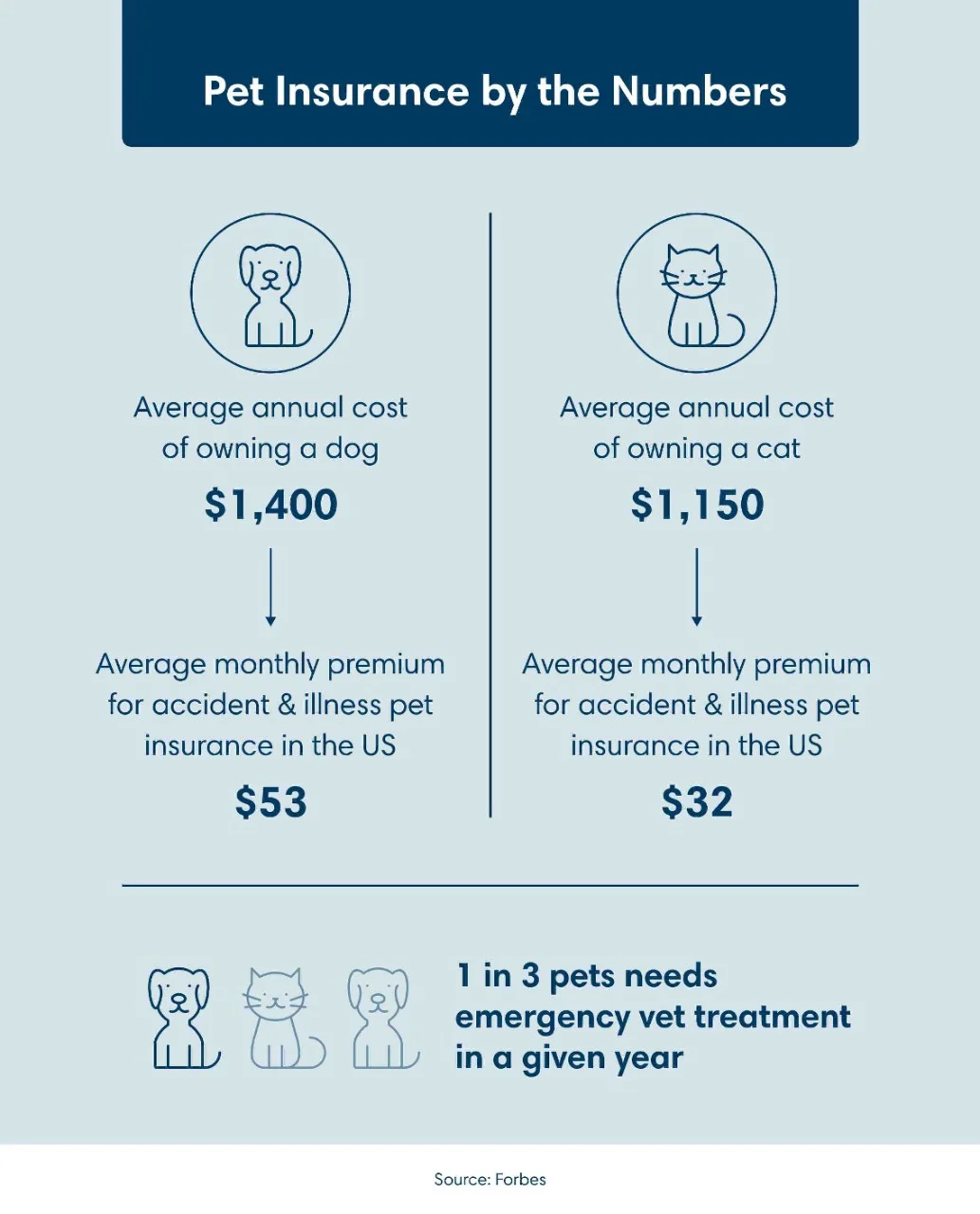The cost of pet ownership and insurance
Tracy Cook will never forget the day her Yorkie, Kacey, was hit by a car. In addition to the emotional trauma, the costs of Kacey's emergency veterinary visit climbed to $5,000.

Now 14, Kacey is deaf in one ear and still has chronic ear infections as a result of the accident. Fortunately, Cook—a Financial Sales Manager with First Citizens Bank in Columbia, South Carolina—had pet insurance.
"I can speak to how important it is," she says. "Just last week, my boss mentioned he had a new pet, and the first thing I said was, 'Have you gotten pet insurance? You need to get it.'"
Covering our pets
Cook isn't alone. According to the North American Pet Health Insurance Association, 4.8 million pets were insured in the US at the end of 2022—a 22% increase over 2021.
If you're like many pet owners and are weighing the pros and cons of purchasing pet insurance for your four-legged friend, here are a few things to consider.
How pet insurance can help
A recent Forbes Advisor survey asked 2,000 dog and cat owners whether inflation would impact their ability to pay a surprise vet bill of less than $1,000. For 63% of pet owners, the answer was yes.
Unexpected veterinary bills can put a strain on your finances, and emergency vet visits can often cost even more than this $1,000 estimate. Pet insurance helps offset these costs so your budget can better absorb them, allowing your pet to receive the care they need with less financial stress on you.
Similar to your own health insurance, pet insurance policies require you to pay a monthly premium that covers a defined selection of services. Your policy will also likely have:
- A deductible: How much you'll pay out of pocket before insurance kicks in
- A reimbursement percentage: The percentage of your vet bill insurance will reimburse for covered services, which typically ranges between 70% and 90%
When you take your pet to the vet for something covered by your pet insurance, you'll typically pay the vet for the cost of care at the time of your visit. You'll then submit your vet bill to your insurance provider, and the company will reimburse you according to your plan's coverage.

What pet insurance covers
Pet insurance covers different services depending on your policy type. Most insurance options fall into three categories:
- Accident-only: Only covers accident-related vet bills
- Accident and illness: Helps pay for both accident- and illness-related bills
- Accident, illness and wellness: Covers accidents, illnesses and regular pet health expenses like annual exams and vaccinations
What pet insurance may not cover
Unlike health insurance for people, most pet insurance policies don't cover routine care like wellness visits. Unless your policy specifically includes wellness, you'll likely pay out of pocket when taking your pet to the vet for an annual exam or vaccines.
If having routine-care coverage is important to you, you should be able to find plans with wellness add-ons that cover your pet's routine care up to a certain dollar amount each year. Some vets may also offer their own plans that cover only routine-care appointments, so it could be possible to mix and match different tactics to help cover your pet.
Pet insurance policies also typically don't cover preexisting conditions or behavioral and training issues. Dental services like cleanings are also generally excluded without wellness add-ons.
While Cook is a proponent of pet insurance, she doesn't necessarily believe the most expensive option is the best option for everyone.
"I want to keep my costs manageable and affordable," she says. To accomplish this, she budgets for Kacey's annual wellness visits and medications and views pet insurance as a solution for unexpected expenses.
The costs of pet insurance
The cost of pet insurance can vary greatly. According to Forbes, the average monthly accident and illness premium in 2023 was $53 per month for dogs and $32 per month for cats.
Factors that may impact your monthly premium include:
- Your pet's age: Younger pets typically have lower premiums
- Your pet's size: Insurers tend to charge more for larger animals, particularly large dogs
- Where you live: Average vet costs in your area will impact what you pay each month
- Deductible: The lower your deductible, the higher your premium
- Reimbursement level: Typically, the higher the percentage of a bill your plan will reimburse you for, the higher the premium or deductible
- Annual plan maximum: A higher maximum might also mean a higher premium
- Add-ons: Many plans offer options that cover routine care and other common services for an additional cost
- Monthly versus annual premium payment: Some policies offer a discount if you pay your entire premium for the year in one lump-sum payment
When shopping for pet insurance, be sure to get multiple quotes so you can choose the best value and coverage for your budget. Just like with insurance policies, vet costs vary depending on your provider. "Shop around for a vet to be sure you're getting excellent care at a reasonable cost," Cook advises.
Alternatives to pet insurance
If something happens to your fur baby and you don't have pet insurance, you may still have other options to help you cover these unexpected costs. There are specialty credit cards for pet care needs, and some banks may offer loans specifically for vet costs. And while you typically can't use a health savings account or a flexible spending account to pay for a pet's health expenses, it's possible if it’s a service animal.
Finding the right plan
While it's impossible to predict whether pet insurance is worth the cost, it's possible to customize a plan that works for your pet and aligns with your budget. The low cost of premiums may also offer you the peace of mind that you'll be able to get your pet the care they need, whenever they need it.
Protect your fur babies
Cover unexpected accidents and illnesses, and get access to providers worldwide.





